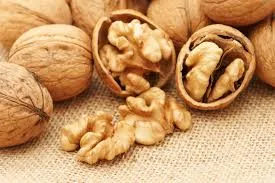Cashew is found almost everywhere in Nigeria, Africa and the world in general. Apart from the delicious fruit of the cashew, the nut is also a rich source of nutrients that the body needs to fight off diseases. The delicately flavored cashew nut is a favorite between meal snack
that can be readily found in your local market year round. It also
makes wonderful nut butter and a special addition to salads and stir-fry
dishes.
Cashew nuts are actually the kidney-shaped seeds that adhere to the bottom of the cashew apple, the fruit of the cashew tree, which is native to the coastal areas of northeastern Brazil. Cashews are always sold shelled because the interior of the shells contains a caustic resin, known as cashew balm, which must be carefully removed before the nuts are fit for consumption. This caustic resin is actually used in industry to make varnishes and insecticides.
Not only do cashews have a lower fat content than most other nuts, approximately 82% of their fat is unsaturated fatty acids, plus about 66% of this unsaturated fatty acid content are heart-healthy monounsaturated fats, similar to those found in olive oil. Studies of diabetic patients show that monounsaturated fat, when added to a low-fat diet, can help to reduce high triglyceride levels. Triglycerides are a form in which fats are carried in the blood, and high triglyceride levels are associated with an increased risk for heart disease, so ensuring you have some monounsaturated fats in your diet by enjoying cashews is a good idea, especially for persons with diabetes.
Research published in the British Journal of Nutrition (Blomhoff R, Carlsen MH), which identified several nuts among plant foods with the highest total antioxidant content, suggests nut's high antioxidant content may be key to their cardio-protective benefits.
Nuts' high antioxidant content helps explain results seen in the Iowa Women's Health Study in which risk of death from cardiovascular and coronary heart diseases showed strong and consistent reductions with increasing nut/peanut butter consumption. Total death rates decreased 11% and 19% for nut/peanut butter intake once per week and 1-4 times per week, respectively.
Even more impressive were the results of a review study of the evidence linking nuts and lower risk of coronary heart disease, also published in the British Journal of Nutrition. (Kelly JH, Sabate J.) In this study, researchers looked at four large prospective epidemiological studies—the Adventist Health Study, Iowa Women's Study, Nurses' Health Study and the Physician's Health Study. When evidence from all four studies was combined, subjects consuming nuts at least 4 times a week showed a 37% reduced risk of coronary heart disease compared to those who never or seldom ate nuts. Each additional serving of nuts per week was associated with an average 8.3% reduced risk of coronary heart disease.
Practical Tip: To lower your risk of cardiovascular and coronary heart disease, enjoy a handful of cashews or other nuts, or a tablespoon of nut butter, at least 4 times a week.
Cashew nuts are actually the kidney-shaped seeds that adhere to the bottom of the cashew apple, the fruit of the cashew tree, which is native to the coastal areas of northeastern Brazil. Cashews are always sold shelled because the interior of the shells contains a caustic resin, known as cashew balm, which must be carefully removed before the nuts are fit for consumption. This caustic resin is actually used in industry to make varnishes and insecticides.
Not only do cashews have a lower fat content than most other nuts, approximately 82% of their fat is unsaturated fatty acids, plus about 66% of this unsaturated fatty acid content are heart-healthy monounsaturated fats, similar to those found in olive oil. Studies of diabetic patients show that monounsaturated fat, when added to a low-fat diet, can help to reduce high triglyceride levels. Triglycerides are a form in which fats are carried in the blood, and high triglyceride levels are associated with an increased risk for heart disease, so ensuring you have some monounsaturated fats in your diet by enjoying cashews is a good idea, especially for persons with diabetes.
Research published in the British Journal of Nutrition (Blomhoff R, Carlsen MH), which identified several nuts among plant foods with the highest total antioxidant content, suggests nut's high antioxidant content may be key to their cardio-protective benefits.
Nuts' high antioxidant content helps explain results seen in the Iowa Women's Health Study in which risk of death from cardiovascular and coronary heart diseases showed strong and consistent reductions with increasing nut/peanut butter consumption. Total death rates decreased 11% and 19% for nut/peanut butter intake once per week and 1-4 times per week, respectively.
Even more impressive were the results of a review study of the evidence linking nuts and lower risk of coronary heart disease, also published in the British Journal of Nutrition. (Kelly JH, Sabate J.) In this study, researchers looked at four large prospective epidemiological studies—the Adventist Health Study, Iowa Women's Study, Nurses' Health Study and the Physician's Health Study. When evidence from all four studies was combined, subjects consuming nuts at least 4 times a week showed a 37% reduced risk of coronary heart disease compared to those who never or seldom ate nuts. Each additional serving of nuts per week was associated with an average 8.3% reduced risk of coronary heart disease.
Practical Tip: To lower your risk of cardiovascular and coronary heart disease, enjoy a handful of cashews or other nuts, or a tablespoon of nut butter, at least 4 times a week.

































